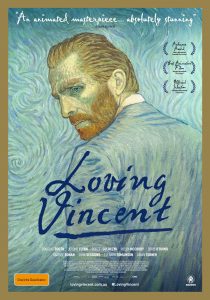In 2012, then Prime Minister Julia Gillard called for a Royal Commission into the sexual abuse claims levelled against the Catholic Church. Since then, it has come out that 7% of Priests, between 1950 and 2009, have been accused of sexual offences. In total, there have been 4,444 purported cases of child molestation. That number is unlikely to be exhaustive of all incidents of sexual abuse.
It is wrong to assume that the Royal Commission was the first ‘real action’ taken against the crimes of the Church. In 2001, local Queensland lawyer Stephen Roche took on a civil case against the Anglican Church. It was on the behalf of a 21-year-old named Lyndal, who endured sexual abuse at her boarding school. It was a landmark case that reconfigured Australian legal and cultural systems: as governor-general Peter Hollingsworth was forced to resign from his post, and public scrutiny was finally directed towards institutions of the Church.
Don’t Tell, Tori Garrett’s debut film, brings the case and its surrounding circumstances to the screen. It is a deeply impassioned, spirited and uncompromising film that deals both with the moral flagrancy of the Church, and the outstanding resilience of its victims.
At the age of 11, Lyndal (Sara West), was repeatedly sexually abused by her housemaster, Kevin Guy (Gyton Grantley). He is only seen in flashback, as he had killed himself seven years before the trial commenced. Garrett doesn’t solely focus our fury onto this individual. Rather, she wants us to condemn the structures and people who enabled such abuse to occur for such a long period of time: figures like Principal Robert Brewster (Robert Taylor) and Archbishop Peter Hollingsworth (Kim Knuckey). The scenes that depict the Church in damage control are filmed by Garrett with a sinister haziness. They are people who are not even remotely good – not even remotely human.
Don’t Tell places significant emphasis on Lyndal’s trauma. The camera often invades her personal space, exposing us to her dread, fears and insecurities. Sara West’s performance is unremittingly powerful as Lyndal, as she refuses to rest on the emotional laurels of the character. Instead, West always reminds us of the all-consuming nature of what has happened to Lyndal.
Lyndal, in search for justice, turns to solicitor Stephen Roche (Aden Young). She tells him she “isn’t fucking scared” of what the proceedings will uncover. Roche is sceptical of that – as his last client suicided. Roche ends up not only being her lawyer, but an important confidante of hers. The chemistry between West and Young is strikingly awkward, tender and paternal – which strengthens the already touching emotional core of Don’t Tell.
Much of the film’s action takes place in the courtroom – which is a brutal, unforgiving place for any victim. The Church’s barrister, Jean Dalton (Jacqueline McKenzie), isn’t afraid to rattle, confront and confound those put up on the stand. She does her best to discredit Lyndal’s therapist, Joy Connolly (Rachel Griffiths), Lyndal’s fellow victims, and Lyndal herself. In the process of showing all the arguments, testimonies and submissions, Garrett criticises the ease with which victims are manipulated; the traumas that can so easily resurface. At least Lyndal has Roche and imperious barrister Bob Myers (Jack Thompson) on her side.
Amid all the horrors and heartbreak, Don’t Tell is hardly hopeless. It is disturbing, but life-affirming; angry, but profoundly peaceful. It recognises the importance of holding culprits responsible, and for victims to heal with support from loved-ones. Garrett ought to be commended for her serious and sensitive portrayal of Lyndal’s story.
Don’t Tell is screening from 18th May through Tojohage Productions & Graffiti Productions. Cinema locations can be found here.






Wow – this is a major trigger for us who were abused. But it seems to say it right and we need that.
Great review thank you. This brillant film should be seen around the world, not as entertainment but for insight into the horror suffered by abuse victims and the moral abhorrence of institutional denialism.